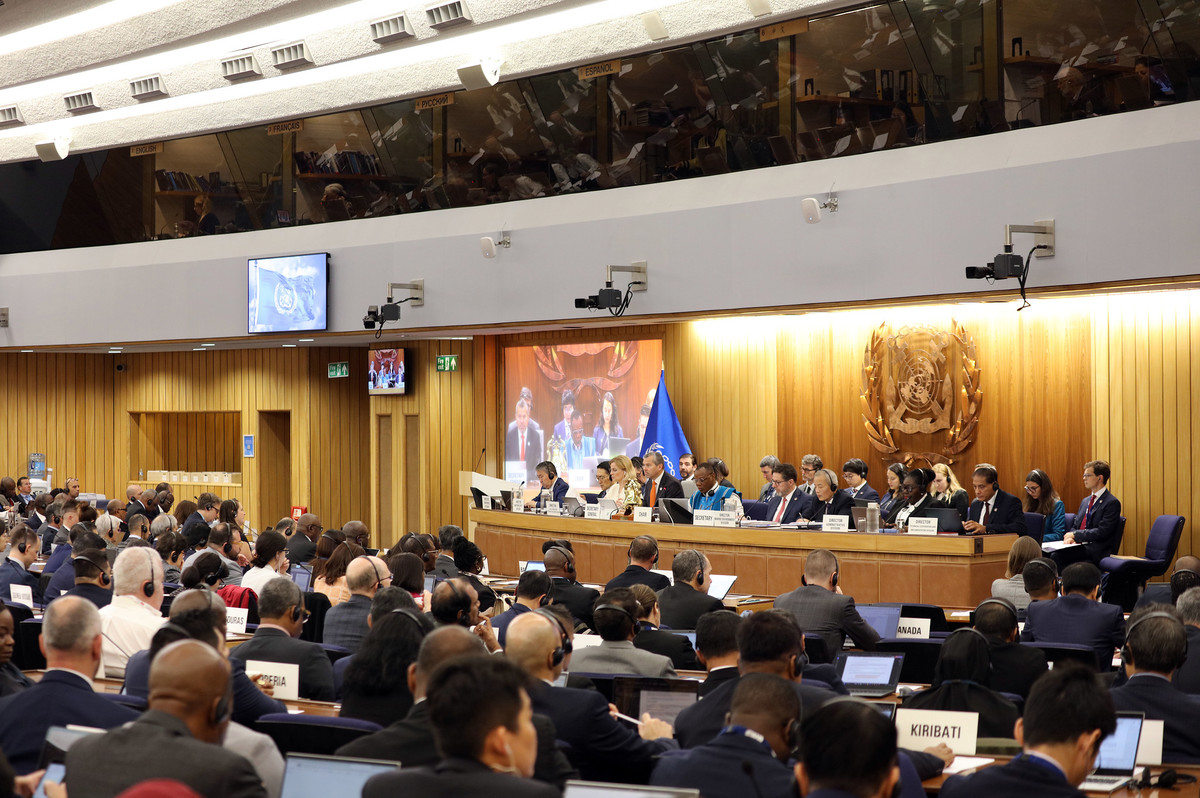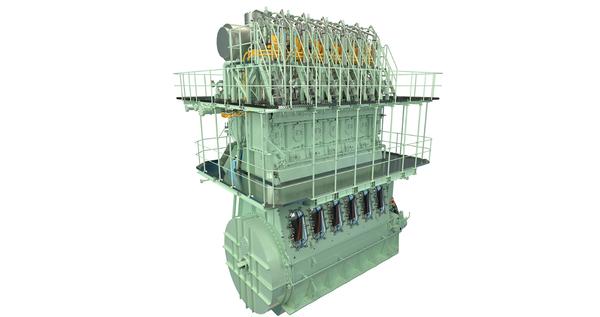The Week in Alt Fuels: Disappointment and opportunity at the IMO
Disappointment ran deep on Friday as the IMO postponed its global Net-Zero Framework for another year. Many are now saying the year should be used to improve the framework and deepen regional collaboration.
 IMAGE: Opening of the IMO Marine Environment Protection Committee's 2nd extraordinary session in London. Flickr/IMO
IMAGE: Opening of the IMO Marine Environment Protection Committee's 2nd extraordinary session in London. Flickr/IMO
After a week of tense debates and geopolitical pushback, adoption of the long-awaited Net-Zero Framework (NZF) was deferred by a year.
“The extraordinary session will be reconvened in 12 months’ time. In the interim, Member States will continue to work towards consensus on the IMO Net Zero Framework,” the IMO said.
The delay followed strong pushback from the US- and Saudi-led bloc, fracturing what many hoped would be a moment of global unity for shipping’s decarbonisation.
Brazil, Singapore and the EU bloc were joined by some island nations such as Tuvalu, Vanuatu and the Marshall Islands, along with African states including Namibia, South Africa and Seychelles, in supporting adoption.
But they were outnumbered by the sheer tonnage represented on the other side.
Major ship registries such as the Bahamas, Liberia voted to delay adoption, along with the US and OPEC+ members including Saudi Arabia, the UAE, Kuwait and Qatar.
Surprisingly, some previous backers of the framework, including China, India, Panama and Kenya, were also among the 57 member states voting to postpone adoption.
Abstentions from major backers such as Japan, South Korea and Greece further shifted the balance.
“The IMO Net-Zero Framework received strong backing from industry, NGOs, Pacific Island states, EU member states, the UK, Brazil, Australia, Canada and others,” said Jenny Helle, shipping decarbonisation expert at Carbon Market Watch.
“The biggest surprise, however, was China’s largely passive role during negotiations - only to ultimately align with the US, Saudi Arabia and other oil-producing countries in delaying the adoption.”
The outcome has left the industry facing another year of uncertainty.
The International Chamber of Shipping said the “disappointing” result undermines investor confidence at a time when the sector urgently needs clarity to plan investments aligned with the IMO’s GHG targets.
A.P. Moller-Maersk called it “a loss of momentum” for a global industry that depends on uniform rules.
IBIA, representing the world’s bunker industry, said the talks had left “diplomatic scars” and noted that a working group will meet at the IMO next week to refine implementation guidelines.
The disappointment was not only procedural. Many saw it as a broader setback for multilateralism.
Several observers pointed to political tensions overshadowing climate priorities, with Transport & Environment describing the outcome as proof that “bullying” by powerful states can stall progress even when consensus seems within reach.
Fuel producers, bunker suppliers and shipowners were equally blunt.
Ammonia Europe warned that every year without a global rulebook “extends uncertainty” and risks eroding confidence in green fuel investments.
Bunker Holding said the delay “keeps uncertainty for green investments alive" and the European Community Shipowners’ Association called it a missed opportunity to send a strong market signal to clean fuel suppliers.
UK-based non-profit Sustainable Shipping Initiative (SSI) said the decision “highlights the vulnerabilities of the IMO, the growing politicisation of decision-making and fragmented consensus between regions.”
SSI warned that the implications could affect investor sentiment, regional regulations and perceptions of the industry’s climate credibility.
Amid dismay, some called for perspective.
The Mærsk Mc-Kinney Møller Center for Zero Carbon Shipping (MMMCZCS) stressed that the IMO’s 2050 net-zero target still stands. “This does not mean the Framework has failed” it said, but pointed out that much-needed clarity appears to be eluded in the near term.
“But the case for a single global framework is stronger than ever,” MMMCZCS noted.
Singapore’s Global Centre for Maritime Decarbonisation echoed that view, saying regional governments will now need to accelerate their own measures in response to the delay.
“The work does not stop simply because the vote is postponed,” it said.
“…all is not lost - not by a long shot, as there is an immediate opportunity to slash GHG emissions from shipping, minimize fuel burn and the overall cost of the energy transition and that is to strengthen and make enforceable the Carbon Intensity Indicator (CII), the IMO’s cornerstone energy efficiency measure,” John Maggs, the Clean Shipping Coalition’s Representative at the IMO said.
Attention has also turned to the next step.
The framework will now be reconsidered at the next MEPC session in October 2026. Even then, the framework may not take effect until close to 2030, Transport & Environment (T&E) estimates.
This delay “undermines years of work on the IMO’s plan to cut shipping’s greenhouse gas emissions risks pushing,” it argues.
T&E and other groups, including the World Shipping Council and the Maritime Ethanol & Methanol Alliance, have urged the IMO to use the coming year to strengthen the framework with clearer incentives for green fuels. They have also called to close “remaining gaps” in the approved draft of the net-zero framework by issuing stronger sustainability safeguards against unsustainable biofuels and finalise well-to-wake lifecycle accounting guidelines and fuel certification standards.
“The extra time must not become an excuse for inaction,” T&E said
Helle added that while the IMO pauses, regional action must continue. “The climate crisis cannot be paused like international negotiations,” she noted
In other news last week, Japan’s Tsuneishi Shipbuilding delivered a hydrogen dual-fuel tugboat named Ten-Oh. The tugboat is powered by twin 12-cylinder hydrogen dual-fuel engines and carries around 250 kg of hydrogen in high-pressure storage tanks.
Dutch chemical manufacturer OCI Global and bunker barge operator Victrol will develop an ammonia bunker supply chain in the Netherlands and Belgium. OCI Ammonia Distribution will procure both green and blue ammonia from major producers in the US, Middle East, North Africa and Asia.
DNV launched a public tender to offer long-term supply of e-methanol within the EU and UK. DNV will offer a total e-methanol volume of 450,000 mt/year through this tender, “creating a new pathway to secure long-term, reliable supplies of this key low-carbon fuel,” it said.
By Konica Bhatt
Please get in touch with comments or additional info to news@engine.online






